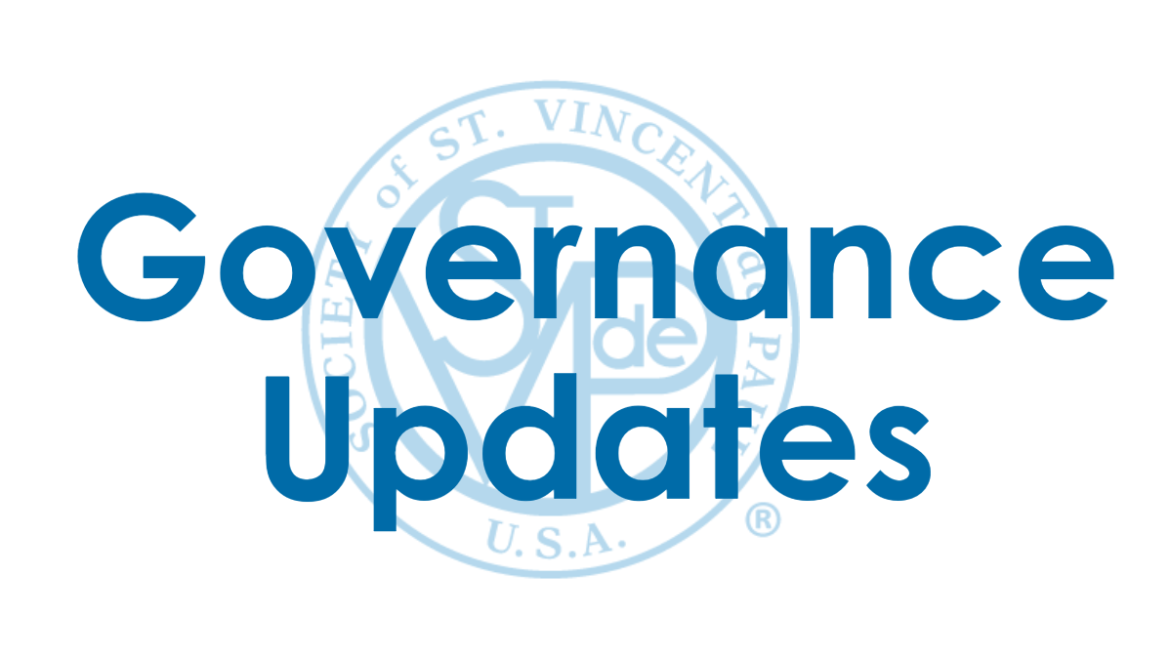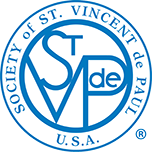Councils And Their Conferences
(Excerpted From Vincentian Life: Council)
This document is about Councils; yet, the starting point of this document is Conferences. Why is that? As you will see below, Councils don’t exist without Conferences and the Council’s primary role is to support the Conferences.
CONFERENCE PARTICIPATION IN THE COUNCIL
This is an important principle to keep in mind: Conferences that do not want to participate with the Council have not been convinced they receive anything of value from the Council and its activities. Councils should never be formed simply for the sake of forming a Council. Councils have a particular purpose and the Conferences must understand what that is.
In the Rule that was in effect prior to 2003, there was a statement that was a clear definition of the purpose of any Council. This statement was in Part II of the Rule, Article 15:
• Councils are responsible for animating and coordinating the work of SVdP units within their respective jurisdictions.
• They serve the Conferences. All Councils are first and foremost at the service of the Conferences with a view to furthering charitable activities. Because every Council gathers information about human needs and services from a variety of sources – the community at large, as well as the Conferences – it keeps Conferences in touch with changing social problems and new programs for helping people.
• … each year, each Council obtains and compiles a consolidated annual report of all the Conferences and Councils attached to it. The Council’s report is then forwarded with any comments to the next higher Council for the preparation of the annual report of the (National) Council of the United States.
• Councils encourage initiatives and strive to bring about the establishment of Conferences, Councils and new works, and the revival of dormant or defunct Conferences.
• A Council reviews and evaluates applications for aggregation and institution that are submitted by its affiliated SVdP groups. If approved at District and Diocesan Council levels, the application is forwarded to the National Council for transmittal to the Council General (International).
• Councils organize, to the fullest possible extent, training and formation sessions for members and potential members on spiritual themes, the Vincentian vocation, and problems of social action and justice.
• To coordinate Vincentian work, Councils keep in regular contact with their Conferences and Councils and inform them of the activities of the Society.
• The Council represents its constituent units in contacts with religious and public authorities.
• Each Council determines the expected contribution (solidarity) from attached Conferences and Councils in order to meet its necessary expenses and assist needy Conference and Council groupings attached to it.
• Special works of the Society conducted by the Councils must rely on the Conferences for support, personnel and funds.
In the current Rule, these responsibilities have not changed. They are also spelled out but not in so compact a form.
The fact of the matter is that all Conferences should be aware of what the Council is doing for them. Conferences should be receiving benefits from the Council that clearly provide value to them. It is the responsibility of the Council to ensure that Conferences understand this clearly. Ultimately, it is the Conference members themselves who make up the Councils and who make the decisions in support of the Conferences.
STRONG CONFERENCES
Strong Conferences make a strong Council! It is the Council’s responsibility to assist and guide Conferences in fulfilling the mission of the Society. The best way to do this is to ensure that Conference leadership and members understand what the Society is all about, what the role of the Conference is and what is expected of members.
When Conferences get into trouble (begin to decline or get into some other difficulty), it is far better to be proactive rather than reactive. It is recommended that each Council form a Conference Resources and Concerns Committee to:
1. Promote understanding and compliance with the Rule, Bylaws and Manual;
2. Develop resources that will help Conferences to understand and fulfill their roles in the Society;
3. Provide training materials for Conference leadership;
4. Monitor Conference activity and act to assist Conferences who are in trouble;
5. Promote and assist in establishing new Conferences;
6. Assist in revitalizing existing Conferences, where needed; and
7. Mediate Conference concerns where needed.
A well-formed Conference Resources and Concerns Committee can monitor Conference activities and offer many aids to make a Conference more effective.
MONITOR SPECIAL CONDITIONS
The following special conditions should be monitored regularly and addressed as necessary:
1. Conference President’s term of office is limited to two consecutive three-year terms. After the two terms, the President must be out of office for at least three years before being elected once again. Technically, as soon as the six years expires, the President is no longer in office and the Conference operates under the leadership of the first Vice President until the election of a new President. In the case of violation of this rule, the Council must ensure that an election is held to replace the outgoing President as soon as possible.
2. Each Conference is to have at least four officers: President, Vice President, Secretary and Treasurer. Each office must be held by a separate person. No one person may hold multiple officer positions. In addition, Statute 12 of Part III of the Rule indicates that a President must not appoint his/her spouse or other closely related individual to an officer position.
3. Service area comes into conflict often within the Society. The District Council should ensure that Conferences provide service only to those people living within the boundaries established for the Conference. These boundaries should be established as a formal agreement between the Conferences in the Council. In some cases, the boundaries will simply be the parish boundaries. In other cases the boundaries may be more extensive, as long as they are agreed upon by the Council. This way, people seeking service cannot simply go from Conference to Conference seeking help. The Conference covering the area where that person or family lives is the one that makes the decision as to help or not help.
A second excerpt from the “Conferences” section of Vincentian Life: Council will appear next week.





